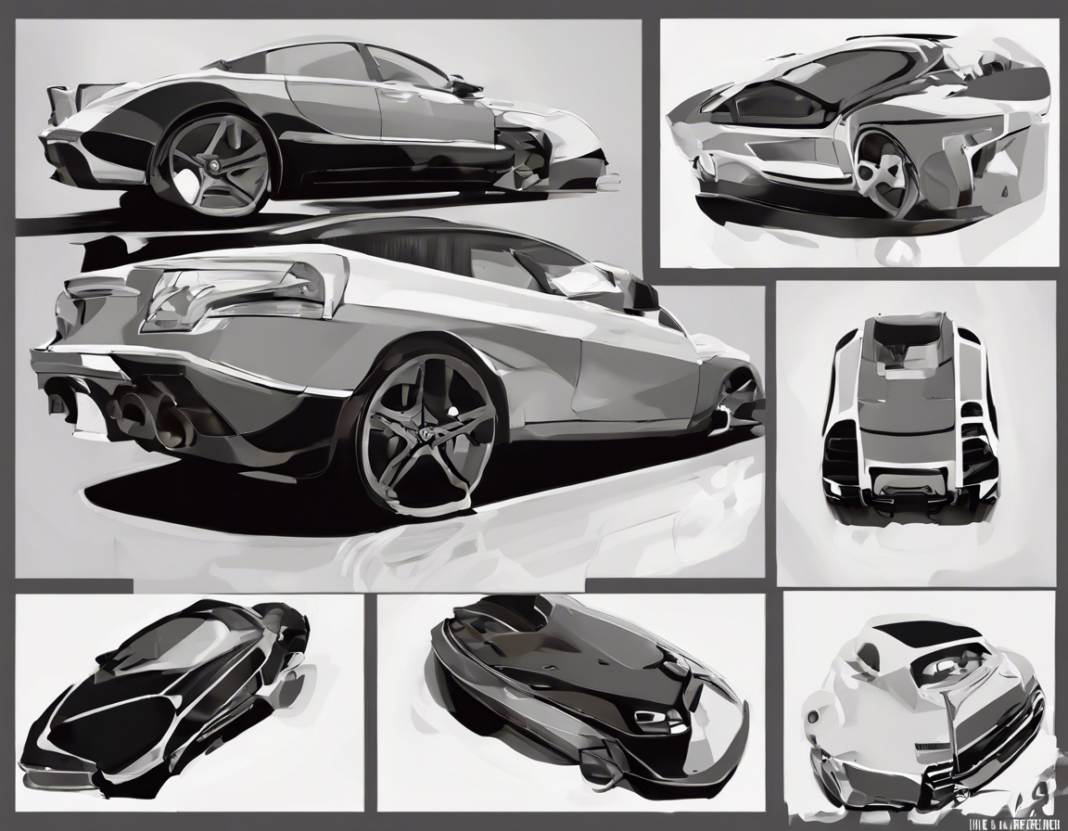Are you ready to dive into the exciting world of the latest 91 Clab tech trends? With the ever-evolving landscape of technology, it’s essential to stay informed about the most recent developments that can shape our future. From artificial intelligence and machine learning to blockchain and augmented reality, let’s unbox the top trends that are making waves in the tech industry today.
Artificial Intelligence (AI) and Machine Learning:
The Rise of AI-powered Solutions:
Artificial Intelligence has been a game-changer in various industries by automating processes, predicting outcomes, and enhancing user experiences. Businesses are increasingly adopting AI-powered solutions to streamline operations, improve decision-making, and boost productivity.
Machine Learning Applications:
Machine Learning, a subset of AI, focuses on developing algorithms that enable computers to learn and make decisions without being explicitly programmed. From recommendation systems and predictive analytics to image and speech recognition, machine learning is reshaping how we interact with technology.
Natural Language Processing (NLP) Advances:
NLP is a branch of AI that allows computers to understand, interpret, and generate human language. With advancements in NLP models like GPT-3 and BERT, we are moving closer to achieving human-like interactions with machines through chatbots, virtual assistants, and language translation services.
Blockchain Technology:
Decentralized Finance (DeFi) Revolution:
Blockchain technology is driving the rise of decentralized finance, enabling peer-to-peer transactions without intermediaries. DeFi platforms offer various financial services, including lending, borrowing, and trading, while providing users with greater control over their assets and privacy.
NFTs and Digital Ownership:
Non-Fungible Tokens (NFTs) have taken the art and entertainment world by storm, allowing creators to tokenize and sell digital assets as unique collectibles. From digital artwork and music to virtual real estate, NFTs are transforming the concept of ownership in the digital age.
Supply Chain Transparency:
Blockchain’s immutable and transparent nature makes it ideal for enhancing supply chain management by tracking products from manufacturing to delivery. By recording transactions on a secure ledger, blockchain technology improves traceability, reduces fraud, and ensures ethical practices in supply chains.
Augmented Reality (AR) and Virtual Reality (VR):
Immersive Experiences:
AR and VR technologies are blurring the line between the physical and digital worlds, offering immersive experiences in gaming, education, healthcare, and retail. Augmented reality overlays digital information onto the real world, while virtual reality creates a simulated environment for users to interact with.
Enhanced Training and Simulation:
AR and VR are revolutionizing training and simulation practices by providing realistic environments for practice and skill development. From medical simulations and military training to virtual tours and employee onboarding, these technologies offer cost-effective and safe alternatives to traditional training methods.
Mixed Reality (MR) Integration:
Mixed Reality combines elements of both AR and VR to merge physical and digital interactions seamlessly. By blending real-world objects with virtual content, MR applications enhance user engagement and offer new opportunities for storytelling, design, and collaboration.
Internet of Things (IoT) Innovations:
Connected Devices Ecosystem:
The Internet of Things refers to the network of interconnected devices that collect and exchange data to automate tasks and improve efficiency. From smart homes and wearable devices to industrial sensors and smart cities, IoT innovations are transforming how we interact with our environments.
Edge Computing Advancements:
Edge computing brings data processing closer to the source of data generation, reducing latency and enhancing real-time decision-making capabilities. By processing data at the edge of the network, IoT devices can perform tasks efficiently without relying solely on cloud computing infrastructure.
Security and Privacy Challenges:
As the number of connected devices increases, ensuring the security and privacy of IoT data becomes paramount. Implementing robust encryption, authentication mechanisms, and device management protocols are essential to protect IoT ecosystems from cyber threats and data breaches.
5G Technology Evolution:
Ultra-Fast Connectivity:
5G technology promises higher data speeds, lower latency, and greater network capacity than its predecessors, enabling enhanced mobile experiences and supporting the growing demand for bandwidth-intensive applications. From high-definition video streaming to real-time gaming, 5G unlocks new possibilities for connectivity.
Internet of Everything (IoE) Integration:
5G networks play a crucial role in realizing the vision of the Internet of Everything, where devices, data, people, and processes are seamlessly connected in a digital ecosystem. With 5G’s capabilities, IoE applications can deliver innovative services across industries, from autonomous vehicles to smart infrastructure.
Industry Disruption and Innovation:
5G technology is driving industry disruption and innovation by empowering businesses to leverage fast, reliable connectivity for transformative applications. Industries such as healthcare, manufacturing, transportation, and entertainment are exploring 5G’s potential to revolutionize processes, create new revenue streams, and enhance customer experiences.
Quantum Computing Progress:
Quantum Supremacy Milestones:
Quantum computing represents a significant leap in computational power by utilizing quantum bits (qubits) to perform complex calculations at unparalleled speeds. Recent advancements in quantum computing have achieved milestones like quantum supremacy, demonstrating the ability to solve problems that are infeasible for classical computers.
Quantum Algorithms Development:
Researchers and tech companies are actively developing quantum algorithms to solve optimization, cryptography, and machine learning problems more efficiently. Quantum algorithms leverage the unique properties of qubits, such as superposition and entanglement, to perform computations that outperform classical algorithms in certain applications.
Quantum Computing Applications:
Quantum computing has the potential to revolutionize various fields, including drug discovery, materials science, finance, and cybersecurity. By harnessing quantum principles to solve complex problems, quantum computers can tackle challenges that are beyond the capabilities of traditional computers, opening up new frontiers in scientific research and innovation.
FAQ:
1. What are the key benefits of artificial intelligence in today’s tech landscape?
- AI enables automation, predictive analytics, and enhanced user experiences.
- It streamlines operations, improves decision-making, and boosts productivity in businesses.
2. How is blockchain technology revolutionizing decentralized finance (DeFi)?
- Blockchain enables peer-to-peer transactions without intermediaries in DeFi platforms.
- It provides users with greater control over their assets and privacy in financial activities.
3. What are the practical applications of augmented reality and virtual reality?
- AR and VR offer immersive experiences in gaming, education, healthcare, and retail.
- They revolutionize training and simulation practices by providing realistic environments for skill development.
4. How does the Internet of Things (IoT) contribute to automation and efficiency?
- IoT connects devices to automate tasks, improve efficiency, and enhance user experiences.
- It powers smart homes, wearable devices, industrial sensors, and smart cities for a connected ecosystem.
5. What advancements does 5G technology bring to connectivity and digital innovation?
- 5G promises ultra-fast data speeds, lower latency, and greater network capacity for enhanced mobile experiences.
- It supports the Internet of Everything (IoE) vision and drives industry disruption and innovation across sectors.
Stay tuned for more updates on the latest 91 Clab tech trends and innovations shaping our future!






